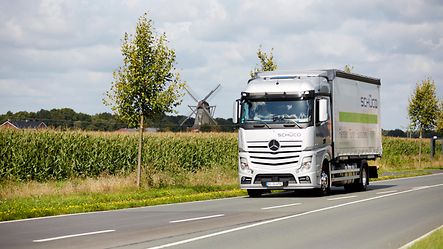Supply chain: Responsible Sourcing
As a developer and provider of system solutions for windows, doors and façades, Schüco is reliant on natural resources, raw materials and materials such as metals and engineering plastics. This is why we want to ensure that we handle our materials in an environmentally and socially conscious way, and scrutinize every part of our supply chain.

Aluminum
The focus here is on aluminum, our most important material in metal fabrication. In this case, the excellent eco balance in the usage and re-use phase is confronted by the social and ecological challenges at the start of the supply chain. The extraction of primary aluminum currently uses a great deal of energy, with a high carbon footprint. Added to this are potential environmental risks and conflicts surrounding land use rights in mining countries such as Australia, Guinea and Brazil, due to large-scale rainforest clearing, for example. As we have a number of direct, product-related suppliers in the area of metal fabrication, achieving an environmentally and socially conscious aluminum supply chain is a huge challenge. At the same time, we believe it is our responsibility, as part of the value-creation chain, to specifically promote the proportion of aluminum that is certified in accordance with sustainability criteria.
We believe we can have a direct impact by implementing a procurement strategy that takes account of sustainability criteria. We are currently putting extra efforts into aligning ourselves with the procurement of low-CO2 materials. In 2019, together with the World Wide Fund for Nature (WWF), we also developed an extensive supplier code of conduct, which urges our business partners to safeguard human rights, ensure fair working conditions, conduct business ethically and protect the environment. In addition, using the internal Schüco standard SN 175, we oblige our suppliers to refrain from using or declare a defined list of potentially dangerous materials. When it comes to aspects that go beyond our area of influence, such as safeguarding human rights in upstream value creation stages, we turn to partnerships. As a founding member of the Aluminium Stewardship Initiative (ASI), for example, we are committed to establishing globally valid, certifiable sustainability standards in the aluminum supply chain.

